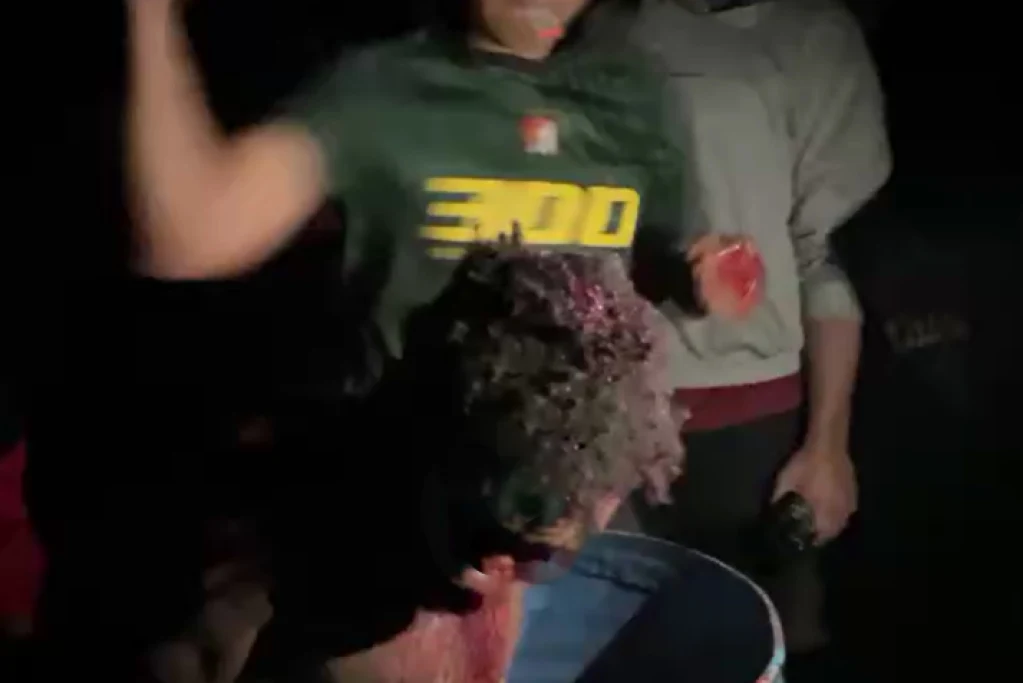Graphic footage of a West Papuan man bound in a water-filled barrel and being beaten and cut with knives by Indonesian soldiers has drawn a rare apology from the commander of Indonesia’s military in the province.
Major General Izak Pangemanan confirmed 13 military personnel had been detained and more than 40 questioned as part of an investigation into the torture of the unarmed man.
“We regret what happened, it shouldn’t have happened,” Pangemanan said, insisting the soldiers’ actions were rogue, and not representative of the Indonesian military.
“We condemn this action. It’s a violation of the law and it has tarnished the military’s reputation,” he said.
“We apologise to to all Papuans”.
The two videos of the man being tortured were filmed in early February this year, during a military raid in the Omukia and Gome districts in Puncak regency, in the Central Papua province.
The footage – which the Guardian has seen but chosen not to republish – shows the man sitting in a 44-gallon barrel that is filled with bloodied water.
In one video he is repeatedly punched, elbowed, hit with sticks and kicked as he sits in the barrel. Blood can be seen running from numerous injuries on his face and head.
In another, a knife is repeatedly run over his back – which is already bleeding – while a hand holds his head. He can be seen to be bleeding from his ear and head, and he is shivering.
The man, with his arms behind his back, does not speak or resist during the assaults. The assailants are dressed in civilian clothes, but at least one is wearing camouflage pants that match the uniform of the Indonesian military, the TNI.
The executive president of the United Liberation Movement for West Papua (ULMWP), Menase Tabuni, condemned the assaults on civilians.
“This kind of action violates human values. No law can condone heinous acts of torture as seen in the two video clips.”
Tabuni said the UN high commissioner for human rights should “immediately form an investigation team to carry out investigations into human rights violations and threats of genocide against the Papuan people”.
A visit by the UN high commissioner for human rights to West Papua was negotiated in 2018 – and has since been supported by more than 100 countries – but has not materialised.
The exiled West Papuan leader Benny Wenda, the president of ULMWP, said while the videos were “extreme and shocking”, they “merely expose how Indonesia behaves every day in my country”.
“Torture is such a widespread military practice that it has been described as a ‘mode of governance’ in West Papua,” he said. “I ask everyone who watches the video to remember that West Papua is a closed society, cut off from the world by a 60-year media ban imposed by Indonesia’s military occupation.
“How many victims go unnoticed by the world? How many incidents are not captured on film? Every week we hear word of another murder, massacre, or tortured civilian.”
West Papuan sources confirmed to the Guardian the torture of the man, whom the Guardian is not naming, occurred in February. It’s alleged another man detained by soldiers at the same time died after being tied up and dragged behind a vehicle, then beaten.
The four contested Indonesian provinces on the island of Papua (also referred to as New Guinea island) are referred to collectively as West Papua.
Indonesia has controlled the former Dutch colony since invading in 1963. It formalised its annexation through the controversial UN approved “Act of Free Choice” in 1969, widely regarded as a sham referendum, in which just over 1,000 selected Papuans were forced – some threatened with violence – to vote in support of Indonesian rule.
In the decades since, security forces have been accused of severe human rights violations, with an estimated 500,000 Papuans killed. A Guardian investigation last year detailed consistent reports of torture and murder of civilians, including children, by military officials.
The Indonesian state has always maintained that the West Papuan provinces are an indivisible part of the Republic of Indonesia.
The situation in Papua is complicated further by politics in Jakarta. Indonesia’s defence minister Prabowo Subianto is the president-elect, having declared victory in last month’s election.
The 72-year-old is a former Kopassus special forces commander, and a twice-failed presidential candidate previously.
He was dismissed from the military in 1998 after claims his forces tortured political opponents of the dictator Suharto. Prabowo has also been accused of human rights abuses in the now-independent Timor Leste and in West Papua.














